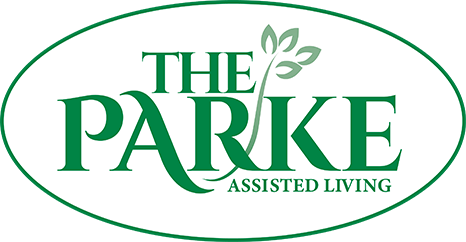When senior parents need some help with daily living, yet don’t need a nursing home, assisted living offers them delightful independence, with help on hand when they need it. With healthy socialization opportunities just outside their door, seniors who choose assisted living often find a quality of life they appreciate. Assisted living helps them to maintain a sense of dignity.
At The Parke, we understand how frustrating it can be when your parents need help doing things they did independently in the past. That’s why we offer premium care for Tulsa seniors. When a senior needs help with activities of daily living (ADLs) like grooming, bathing, walking, transferring on and off the commode, meal preparation, or eating—it may be time to look into transitioning to an assisted living community.
When you perceive it’s time, talk with your parent about transitioning into assisted living. It may be time to consider a transition in their living arrangement so they have a safe place to live and help at their fingertips (if needed). The comfort and peace of mind it gives families to know their loved one is safe and well cared for is priceless.
Signs it’s time to make a transition into assisted living:
- Does your parent need help with activities of daily living (ADLs)? Is your parent struggling with grooming, bathing, walking, meal preparation, taking medicine on time, or eating?
- Is your parent wandering away? It can be dangerous if a senior parent wanders away. The need to look into memory care specific assisted living communities can ensure their safety.
- Is your parent at risk of falling? As people age, their balance can decrease, causing greater risk of falls and injury. If your parent had an unexpected fall in their current home, who would find them, and how would they call for help?
- Is your parent lonely? Socialization offers positive benefits for seniors, and it’s important to have healthy interactions with others. Too many seniors stay home and become isolated.
- Does your parent have a chronic health condition? Is their overall health declining?
- How is your parent doing with their home maintenance? When you look at your parent’s home, are the appliances, heating and air conditioning unit, and yard in good repair?
Are there signs things are being overlooked? - Is your parent maintaining their vehicle properly? Is their car maintenance up-to-date? Is your parent still safe driving? One easy test is to ask them to drive the next time you go somewhere together.
- Is one of your parents caregiving for the other? Be careful to watch for signs of caregiver burnout. When one spouse cares for the other, they may become overtaxed.
Here are some tips on talking with your parents about assisted living:
1. Realize the conversation may actually be a series of conversations.
Plant seeds at appropriate times, and begin to express concern when you see things occurring that could put them in an unsafe position. Understand that putting off “the conversation” too long could put your parent’s well-being at risk. Realize the transition to assisted living can be positive for many reasons, such as:
- Get the help your parent needs
- Improve your parent’s quality of life
- Enjoy peace of mind knowing your parents are well cared for
2. Take the mystery out of assisted living communities:
Work together with your parents to research various assisted living communities in the area. Find out if they offer activities your loved one will enjoy. Check out the reviews from residents and families. Then, schedule a few visits to your favorite assisted living communities. Assess each option with the criteria most important to your parents, such as activities, cleanliness, apartment details, dietary needs, and budget. Plan on joining in an activity while at the communities you tour, and eat in the dining room if possible, to get a feel for the food they provide residents.
3. Choose an empathetic approach to conversations about change.
Transitions aren’t easy for seniors. Take a moment and put yourself in their shoes to gain understanding of how they may feel about transitioning to assisted living. While there are many positives about moving into assisted living, there still must be a letting go of the home they have lived in for so long. It can be emotional to let go of their current home. Take time with your loved one to simply listen to their concerns about transitioning to assisted living. Offer reassurance, and let them know they can take their favorite possessions with them, and you and your children will visit them and pick them up for family gatherings and events.
4. Address the pet situation.
Many assisted living communities allow residents to bring their pets with them. This can offer great comfort to many seniors considering the transition.
5. Involve your parent in the decision process.
As you approach your parent with the possibility of assisted living, go over the logistics of finances for the transition. Additionally, consider discussing what your parent could do if they don’t choose assisted living. If medical needs prevail, a nursing home may be a better option. If your parent wants to stay in their home, discuss and weigh the risks:
- How will they call for help in case of emergency?
- What can you install to help prevent falls?
- How will they verify they’ve taken their medications daily?
- Who will maintain their yard and home interior?
- What type of transportation is safe at this time?
What Others Are Saying about The Parke Assisted Living Community
The Parke is one of the most beautiful assisted living communities in the Tulsa area. Check out our reviews and learn why so many families appreciate the lifestyle, care, and security of this carefully designed, beautiful assisted living community. Feel free to contact us to schedule a tour of our facility and a delicious meal (on us) in our dining room.

